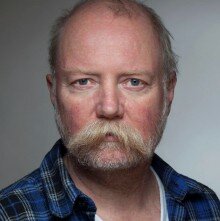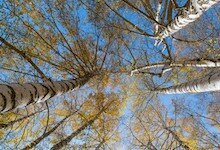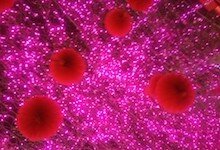Nederlands ►

Even at collection title level, Piet Gerbrandy juxtaposes opposing concepts. A silent man in his poetry is not bitter; the sacred is also false; one can be surly without hating. His poetry throws up contrasts in order to shoot them down: ‘Fly high, no, sing everything loose that / sits firm, pound sayings to piercing shards’. Gerbrandy’s language is chipped off Dutch, distributed wholesale in grating combinations, stony nouns and interruptions that undermine the rhythm of reading.
Gerbrandy transports the reader into a crashing high but always throws him out of it again. His poetry often turns, apart from and against wimps, power-wielders and wise-guys, against itself, its maker and its readers. The acts of writing and reading are constant attempts to make sense out of a reality that is basically there to be experienced. And lovers of poetry also run the risk of entrenching themselves: ‘Do you consume studies and avoid the source?’
Although literacy leaps from the page, the poetic tradition of centuries does not function as an easy pillow. On the contrary, it shows that poetry keeps harping on its own insufficiency. But precisely because it is aware of its uselessness, and its illusory longing for rest, it is not completely meaningless. Poetry has a right to speak, insofar as it seeks contrasts and makes them perceptible, as it evokes longing and shows the unattainability. In that way, it takes you back to your paltry existence: ‘Brains wrack themselves for source of sustenance’.
Physicality is what Gerbrandy always refers back to. The greatest dichotomy to be leveled out is that between life and death. What is alive is still here. The frequent word ‘still’, especially in the hard entreaty, ‘Remain that longer still the well in which I calve”, is evidence not only of unattainability but also of a seething life-will caught in a fight to the death. ‘What can ever will and worse than reckoned with’. Until then, there is also Gerbrandy’s poetry.
Bibliography
Poetry
Weloverwogen en onopgemerkt, Meulenhoff, Amsterdam 1996
– winner of the Van der Hoogt Prize
– nominated for the C. Buddingh’-prijs
Nors en zonder haten, Meulenhoff, Amsterdam 1999
– nominated for the VSB Poetry Prize
De zwijgende man is niet bitter, Meulenhoff, Amsterdam 2001
– winner of the Herman Gorter Prize
– nominated for the VSB Poetry Prize
Drievuldig feilloos vals, Meulenhoff, Amsterdam 2005
Krang en zing, Contact, Amsterdam, 2006
Vriendinnen, Contact, Amsterdam, 2010
Morgen ben ik vrij, Atlas Contact, Amsterdam, 2010
Vlinderslag, Atlas Contact, Amsterdam, 2013
– winner of the Jan Campert Prize
– nominated for the 2015 VSB Poetry Prize
Voegwoorden, Atlas Contact, Amsterdam, 2015
Essays & translations (selection)
Boeken die ertoe doen: over klassieke literatuur, Meulenhoff, Amsterdam 2000
Quintilianus: De opleiding tot redenaar, translation & introduction by Piet Gerbrandy, Historische Uitgeverij, Groningen 2001
Een steeneik op de rotsen, Meulenhoff, Amsterdam 2003
Omroepers van oproer, Breekijzers in taal, Contact, Amsterdam 2006
Links
Gerbrandy at the Koninklijke Bibliotheek (Royal Library, The Hague)
Gerbrandy's Dutch Wikipedia entry
Piet Gerbrandy participated in the Poetry International Festival in 2006. This text was written on that occasion and subsequently has been updated.







